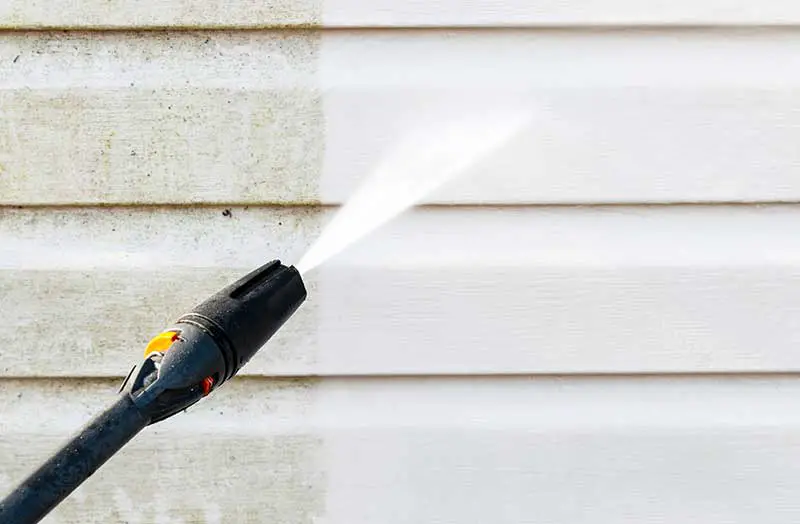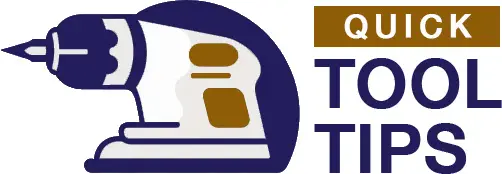A pressure washer’s water usage depends on its flow rate (GPM) and the duration of use. Generally, electric pressure washers are more water-efficient, while gas-powered and professional models use more water but provide higher cleaning power.

Calculating Water Consumption
To calculate the water consumption of your pressure washer, you need to know its flow rate (in gallons per minute or GPM) and the duration of your cleaning job. The formula to calculate the total water consumption is:
Total Water Consumption = Flow Rate (GPM) × Duration (minutes)
For example, if you use a pressure washer with a flow rate of 2.5 GPM for 30 minutes, the total water consumption would be:
Total Water Consumption = 2.5 GPM × 30 minutes = 75 gallons
Factors Affecting Water Usage
Water usage during pressure washing can be influenced by several factors:
- Flow Rate: Higher flow rates result in more water consumption
- Cleaning Speed: Faster cleaning jobs may require more water to remove stubborn dirt
- Nozzle Selection: Different nozzles can affect water usage due to varying spray patterns and pressure levels
- Cleaning Technique: Proper cleaning techniques can help save water
Table 2: Factors Affecting Water Usage
| Factor | Effect on Water Usage |
|---|---|
| Flow Rate | Higher flow rates result in more water consumption |
| Cleaning Speed | Faster cleaning jobs may require more water |
| Nozzle Selection | Different nozzles affect water usage due to varying spray patterns & pressure |
| Cleaning Technique | Proper techniques can save water |
Several factors can affect water usage, including flow rate, cleaning speed, nozzle selection, and cleaning technique.
Comparing Pressure Washer Water Efficiency
When comparing pressure washers, it’s essential to consider both water efficiency and cleaning effectiveness. A more efficient pressure washer may use less water, but it might also take longer to complete the cleaning job.
Table 3: Comparing Pressure Washer Efficiency
| Pressure Washer Type | Flow Rate (GPM) | Cleaning Units (CU) | Water Efficiency |
|---|---|---|---|
| Electric | 1.4 – 2.0 | 1,500 – 3,000 | High |
| Gas-Powered | 2.5 – 4.0 | 3,000 – 8,000 | Moderate |
| Professional | 4.0 – 10.0 | 8,000 – 30,000 | Low |
Electric pressure washers are generally more water-efficient, while gas-powered and professional models use more water but provide higher cleaning power.
Water Saving Tips for Pressure Washing
To save water while using a pressure washer, consider the following tips:
- Choose the Right Nozzle: Select a nozzle that provides efficient cleaning with minimal water usage.
- Pre-Treat Surfaces: Pre-treat surfaces with cleaning solutions to loosen dirt and grime, reducing the need for excessive water.
- Avoid Overlapping: Be mindful of overlapping cleaned areas to prevent wasting water.
- Use a Sweeper Attachment: Sweeper attachments can help distribute water more evenly and reduce water usage.
Save water by choosing the right nozzle, pre-treating surfaces, avoiding overlapping, and using a sweeper attachment.
Environmental Impact of Water Use
Excessive water use in pressure washing can have negative environmental impacts, such as depleting water resources, increasing water treatment needs, and causing water pollution. It’s crucial to use water responsibly and follow local water regulations.
Selecting an Eco-friendly Pressure Washer
When choosing an eco-friendly pressure washer, look for the following features:
- Lower Flow Rate: Models with lower flow rates tend to use less water.
- Automatic Shut-off: Pressure washers with an automatic shut-off feature will stop the water flow when the trigger is released, saving water.
- Energy Efficiency: Opt for energy-efficient models to reduce your overall environmental impact.
- Detergent Injection System: Models with a detergent injection system can enhance cleaning efficiency, reducing the need for excessive water usage.
Choose an eco-friendly pressure washer by considering features like lower flow rates, automatic shut-off, energy efficiency, and detergent injection systems.
Key Takeaways
- Pressure washer water usage depends on factors like flow rate (GPM), cleaning power (CU), and nozzle size.
- To calculate water consumption, multiply the flow rate (GPM) by the duration of use (in minutes).
- Electric pressure washers are generally more water-efficient, while gas-powered and professional models use more water but provide higher cleaning power.
- Save water by choosing the right nozzle, pre-treating surfaces, avoiding overlapping, and using a sweeper attachment.
- When selecting an eco-friendly pressure washer, consider features like lower flow rates, automatic shut-off, energy efficiency, and detergent injection systems.
Conclusion
Understanding how much water a pressure washer uses is essential for responsible water usage and making informed decisions when purchasing a pressure washer. By considering factors like flow rate, cleaning power, and water-saving tips, you can minimize the environmental impact of your pressure washing activities and choose the most eco-friendly pressure washer for your needs.
